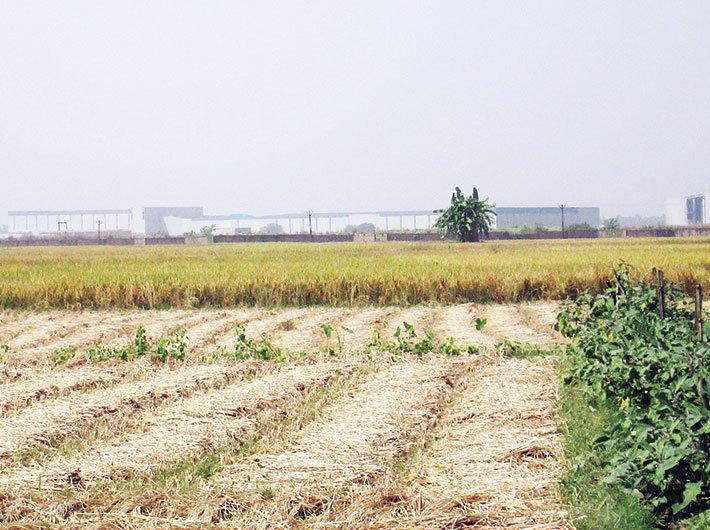The landmark SC verdict not only gives Singur farmers their land back but also sets precedent for others fighting against land acquisition in other states
It was a major victory for the country’s farmers when the supreme court (SC) quashed the acquisition of land in Singur for Tata Motor Limited’s Nano car project. The judgment took a strong stand in favour of the farmers’ agricultural land besides calling into question the definition of ‘public purpose’. What is unique is that for the first time the court ordered returning of land to farmers while asking them not to return the compensation they received. The SC judgment exposed how indifferent the acquisition process was to the wishes and rights of the land owners in terms of consent and compensation.
In May 2006, the then West Bengal government had acquired nearly 1,000 acres of land in Singur under the Land Acquisition Act of 1894. The Right to Fair Compensation and Transparency in Land Acquisition Act, 2013, which replaced it, has included clauses to ensure proper consent from land owners and payment of market rates in compensation.
The judgment is a culmination of a fight started by chief minister Mamata Banerjee. When her government brought in legislation to enable returning of land to Singur farmers, it was rejected by the Calcutta high court. An appeal in the SC supported by the state led to this judgment.
The judgment could set a precedent in many ways for disputes about all the land acquired under the earlier law, say experts. However, they are not so confident if there is any guarantee of a replication of the judgment in every case. One of the reasons for this is that while the two judges – justice V Gopala Gowda and justice Arun Mishra – agreed that the land should be returned, they disagreed on whether it was in ‘public purpose’ or not.
While justice Gowda rejected the argument that the acquisition served a public purpose as it was done for the private company, justice Mishra stated that manufacturing units would help the people of West Bengal by creating more jobs and indeed serve public purpose.
Lakshmi Premkumar, activist with Programme for Social Action (PSA), says, “Despite the difference of views of the two judges, the judgment does bring into question all land acquisition done under the Land Acquisition Act, 1894. Though the judgment is open to appeal, it can reinterpret land acquired prior to the new law of 2013.”
Medha Patkar has been fighting for farmers in Madhya Pradesh for compensation for land acquired from them for the dams under the Sardar Sarovar Project (SSP). While she calls the judgment historic, she feels that it does not guarantee return of land to farmers who had to give up their land in several other states. “A different bench may have given a different ruling,” she says, speaking from 31 years of experience of fighting a legal battle for the land evictees of the SSP (see interview).
Premkumar agrees, “If it comes to any other bench then you will be faced with a regressive judgment again.”
While the judgment is indeed historic, its timing is even more significant. It has come when many state governments have drafted their own land acquisition legislation to sideline the 2013 land acquisition law. “The state legislations brought by BJP-ruled states are almost a replica of the ordinances which the Narendra Modi government brought,” says Ashok Shrimali, secretary general of mines minerals and PEOPLE (mm&P). “The judgment has given an edge to land movements in these states. We were all united and won against the government in getting the anti-farmer ordinances cancelled. Now this judgment gives us more ammunition,’’ he adds.
While the 2013 law ensures social impact assessment and consent from 80 percent of the people whose land is to be taken, it is ironical that hardly any land is being acquired under this new Act. The states are acquiring lands under the laws they have made, says Madhuresh Kumar, an associate of Patkar from the National Alliance of People’s Movements. “It is yet to be seen if the judgment sets any precedent in fighting the battles against acquisition done under other laws,” says Kumar.
Since the judgment scathingly attacked the procedure of acquisition and the measly compensation which had no relation to market rates, it will help all petitioners in the fight against unfair acquisition of land.
Menon is a freelance journalist.
(The article appears in September 16-30, 2016 edition of Governance Now)

